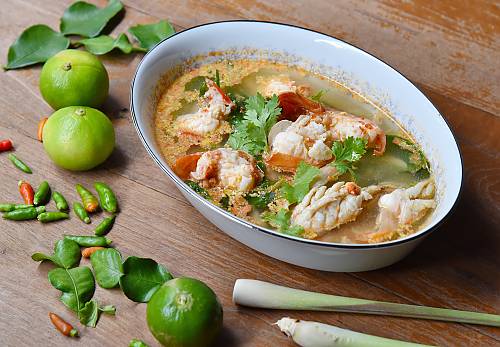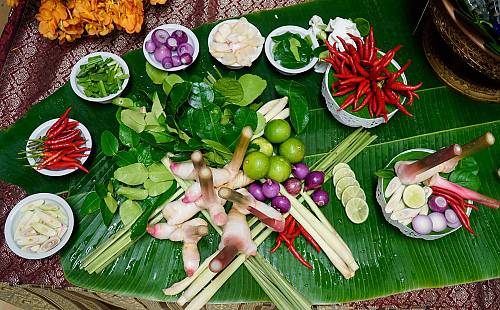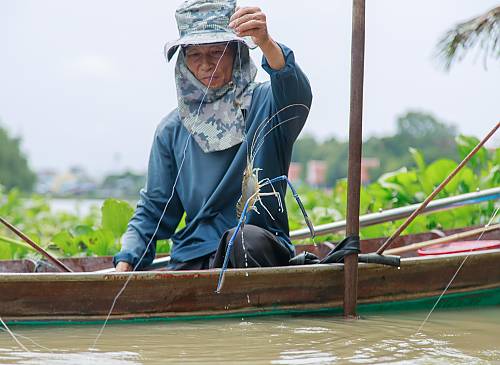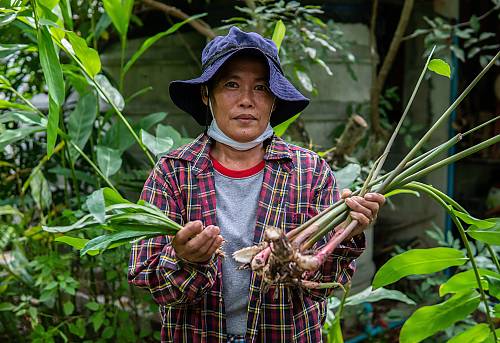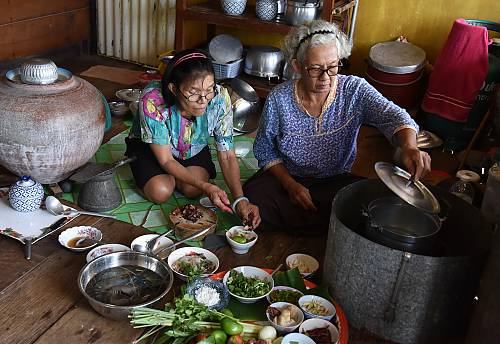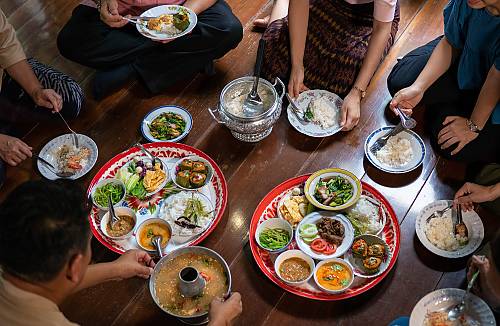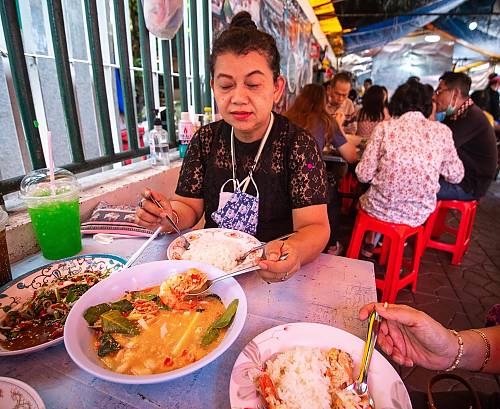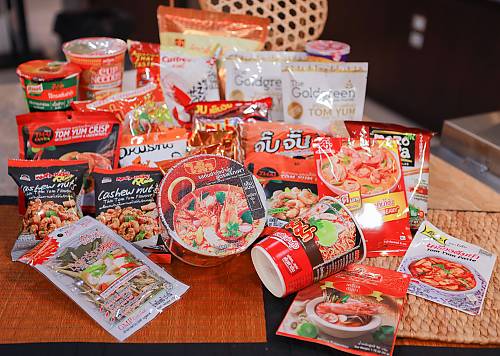Tomyum Kung
Inscribed in 2024 (19.COM) on the Representative List of the Intangible Cultural Heritage of Humanity

Tomyum Kung is a traditional prawn soup from Thailand. The prawns are boiled with herbs, including lemongrass, kaffir lime leaves, galangal root and shallots, then seasoned with local condiments. It has a recognizable aroma and vibrant colours, and combines many tastes, including sweet, sour, savoury, spicy, creamy and slightly bitter. The dish originated among the Buddhist riverside communities in the Central Plains of Thailand, a plentiful region that for centuries has been the main production area of the nation’s food. These communities traditionally avoided killing large animals, preferring to eat the naturally abundant freshwater prawns. This preference, combined with their local knowledge about medicinal herbs, led to the development of the dish, which is believed to promote energy and wellness, particularly during the monsoon season. The related knowledge and skills – including the cooking, the selection of herbs and other ingredients, and the conservation of the environment – are transmitted orally, within families and at social and cultural gatherings. As the dish’s popularity has grown nationally and internationally, it is now also transmitted through restaurants, organizations, schools and universities. Tomyum Kung is a reflection of Thai Buddhist values and the embodiment of traditional knowledge of the local environment and resources.
